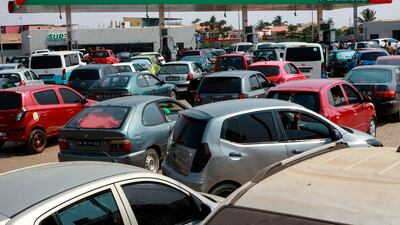Vivo Energy is on the lookout for further African acquisitions after adding more than 200 filling stations from Gabon to Mozambique.
“There is fantastic growth and potential in these countries,” chief executive Christian Chammas said Tuesday. The expansion plans of the London-based retailer, which in May pulled off the city’s biggest new listing this year, follows acquisitions by other fuel providers in southern Africa as demand climbs.
Vivo is buying 225 fuel stations on the continent from Engen for $204 million in cash and stock. The transaction has been revised since the original 2017 agreement, with 75 outlets in the Democratic Republic of Congo now dropped from the deal following legal challenges, Mr Chammas said.
With the acquisition expected to close next March, Mr Chammas said Vivo is seeking further purchases in South Africa and Nigeria to add to its stable of more than 2,000 service stations across 23 African countries.
Vivo rose as much as 3.9 per cent in London trading, and was up 3.4 per cent at 133.36 pence as of 11:28am local time. The company, backed by oil-trading giant Vitol Group, first sold shares in May at 165 pence apiece.
Vivo will pay $62.1m in cash and issue 63.2 million shares to Engen under the revised terms of the deal. It will gain Engen-branded filling stations in Gabon, Kenya, Malawi, Mozambique, Reunion, Rwanda, Tanzania, Zambia and Zimbabwe. Engen will own about 5 per cent of Vivo’s shares, according to a statement.
Following this year’s $1 billion acquisition of Chevron’s southern African assets by a group backed by Glencore, “there are remaining opportunities” in South Africa,Mr Chammas said. Total and Sasol have both expressed interest in expanding their fuel-station networks in the country, which has about 4,600 outlets.
_______________
Read more:
Rush back to African upstream raises regional dilemma
Gas set to shine as African nations wake up to potential
_______________
“We will look at any other opportunity and evaluate it,” Mr Chammas said.
Vitol owns 40 per cent of Vivo alongside 30 per cent shareholder Helios Investment Partners. They both have fuel-station holdings in Nigeria - another target for Vivo. In 2016, they bought a 60 per cent stake in Oando’s downstream and retail business, which has service stations and storage units in the country.
“One day, they may knock on our door and ask us to take it over or buy it,” Mr Chammas said. “So we would, of course, look at that with a lot of interest.”
Vivo is also looking to expand its non-fuel retail operations, such as convenience stores and fast-food restaurants - a business that grew 22 per cent last year.
“It is changing the profile of the company to becoming a very strong retailer, with ultimately about 75 per cent of its business coming from retail,” up from 60 per cent now, Mr Chammas said.

